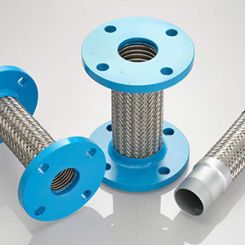Parsippany, NJ (March 20, 2015) - The Hydraulic Institute (HI), North America’s largest pump trade association, announced the release of two Notices of Proposed Rulemaking (NOPR) by the United States Department of Energy (DOE), copies of which are now available through the HI website. New details and background on HI’s role in representing HI members and the pump industry on evolving regulations are available at Pumps.org/DOERulemaking. The long-anticipated NOPR for Energy Conservation Standards for Pumps was issued by the U.S. DOE on March 17. This 257-page document is now available for public review and comment. Also, the NOPR for the Test Procedures for Commercial and Industrial Pumps was issued by the U.S. DOE on March 13. This 270-page document is also available for public review and comment. HI intends to respond on behalf of its members, both in writing and at the April 29th Public Hearing in Washington, D.C. HI’s website provides information on the public hearing, including how to register to participate by webinar. All notices, public comments, public meeting transcripts, and supporting documents associated with this rulemaking are included in DOE’s separate Dockets. The DOE website also gives guidance on how to comment on the rulemaking and provides background on its statutory authority and other rulemaking documents. The public comment period closes 75 days after publication in the Federal Register for the Test NOPR and 60 days for the Efficiency NOPR. HI intends to organize pump industry input with and through HI members and to submit a summary of consolidated and consensus-based comments to the U.S. DOE. The DOE Rulemaking section of the HI website provides background and a history of HI’s efforts to represent its members throughout the DOE rulemaking process, which began in early 2011. Members of the Hydraulic Institute that who have been actively involved in the creation of the new HI 40.6 Efficiency Testing for Rotodynamic Pumps standard, cited and referenced in the NOPR, along with HI members on the Appliance Standards Rulemaking Advisory Committee (ASRAC) Pump Working Group and other HI members involved in Pump Efficiency Rating (PER) metric analysis will work to review the NOPR and be prepared to submit comments to DOE during the hearing on April 29, 2015. The ASRAC Pump Working Group reached a consensus agreement with the DOE on June 19, 2014. Consensus is defined in a Term Sheet, documenting all of the negotiated positions, including a summary of the voting on each position. DOE documented the details as part of the rulemaking development process. The Term Sheet is also available for review on the www.Pumps.org/DOERulemaking section of the HI website. All pump OEMs that manufacture clean water pumps included within the scope of the proposed rule are encouraged to review the proposed rulemaking and engage in the process of responding at this stage of the DOE process. Any HI member who is interested in actively participating in this review should contact Matt Zolnick, HI standards engineer at mzolnick@Pumps.org. Non-members, who are interested in becoming involved in the Hydraulic Institute and its standards and guideline writing activities and education/training programs, should contact Mary Silver, director, Membership at msilver@Pumps.org. Corporations, energy efficiency organizations, utilities and pump end-users interested in learning more about optimizing pumping systems should contact Mark Sullivan, director of Education and Marketing at msullivan@Pumps.org. The mission of the Hydraulic Institute is to be a value-adding resource to member companies, engineering consulting firms, and pump users worldwide by developing and delivering comprehensive industry standards, expanding knowledge by providing education and tools for the effective application, testing, installation, operation, maintenance, and performance optimization of pumps and pumping systems, and by serving as a forum for the exchange of industry information. Pump Systems Matter is a non-profit educational organization established by the Hydraulic Institute, and leading utilities and energy efficiency organizations, to educate the industry on the benefits to pump systems optimization and energy efficiency to improve bottom-line savings of end-user companies.
Fri, 03/20/2015 - 00:00

